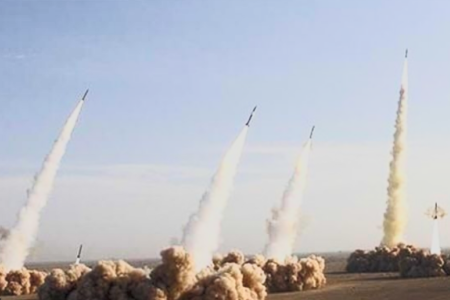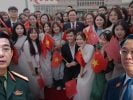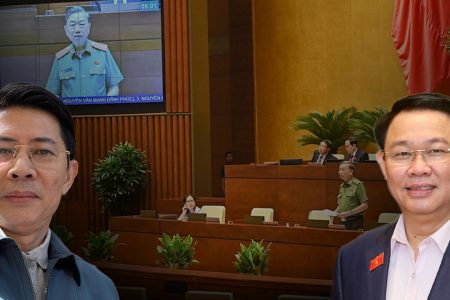
Ant Group is “purged”
In 2019, the Chinese government established the Science and Technology Innovation Commission (STAR) stock market under the Shanghai Stock Exchange, thereby allowing domestic science and technology companies to comply with the regulations aligned with the country’s sector-specific strategies approved by the government, raising capital, and listing internationally. The establishment of STAR promises to ease the requirements for return and pricing based on registration and disclosure relevant to stock markets around the world.
According to the plan, Alibaba’s Ant Group should have been simultaneously listed on the Hongkong and Shanghai Stock Exchanges through STAR on November 5, 2020. However, just two days before the initial public offering (IPO), the Chinese government abruptly halted the launch of Ant Group’s $37 billion worth of shares, after conducting regulatory oversight for this online banking and wealth management platform.
The political implications behind
Jack Ma (Ma Yun), founder of Alibaba Group, summed up his delicate relationship with the government as “always loving, but never married.” Wang Jianlin, founder of China’s real estate giant Wanda Dalian, thinks the most comfortable state in government-business relations is “closer to the government, away from politics.” Their implication is almost the same, that in China, if you want your business to grow, you must develop a good relationship with the government. However, although Ma Van and Wang Jianlin insist on establishing good relations with the government, they are still suspected and “punished.”
Explaining the cause of Beijing’s sudden change in attitude towards billionaire Jack Ma, observers said that the Alibaba boss, who holds nearly a third of Ant Group’s capital, has “regarded heaven as swing” and gave himself the right to criticize the regime. Speaking at a business forum in Shanghai on October 24, 2020, Jack Ma publicly “calls for reform of the financial system and expansion of currency payment services via the Internet.” And yet, he said that China’s banking system today still functions as “pawnshops” and therefore it is time to “create a financial system for future generations.”
By blocking Ant Group’s initial public offering, Beijing sent two signals at once. One is to prove that the Chinese Communist Party still holds all the right to life and death in its hands, even with the “leading birds” in the high-tech field. Second, in the current context, does China need foreign capital and the private sector to restart the economic engine after the COVID-19 pandemic? That is something that remains ambiguous once Xi Jinping declares war on Jack Ma.
Others have explained that Jack Ma is a man of the “old regime.” Those who advocated untying private finance like Jack Ma were once associated with former Chongqing Party Secretary Bo Xilai. Thanks to this fulcrum, Alibaba boss easily established Ant Group. In addition, even before Alibaba went public in New York in 2014, the press reported that Jiang Zhicheng – grandson of Jiang Zemin, Li Baitan – son-in-law of Jia Qinglin and Tran Nguyen – Tran Van’s son, along with Xia Jin Loi – son of former Politburo Standing Committee member He Guoqiang, and Wen Yunsong – son of former Prime Minister Wen Jiabao… all have shares in Alibaba. It is this group of people who are the source of Jack Ma’s support, causing Jack Ma to “attack” the conservative line of Xi Jinping.
This is really a big problem for Xi Jinping. Especially in the context of the XX Party Congress, with its attacks on Xi Jinping. So Xi Jinping took action. In the end, Jack Ma has only two ways out: Either accept the rules of the game imposed by Beijing, which means the online financial group has to suffer heavy losses; or choose the second solution is to agree to issue shares, but at the “stork” level, not tens of billions of dollars like this project, along with the acceptance for all corporations under Jack Ma share big data, personal information of partners’ customers … with the government, through which the government can monitor all targets that Beijing wants.
Ant Group’s story shows how politics governs and impacts China’s businesses and business environment. But most importantly, it shows that, in the Chinese capitalist model, the Communist Party still holds all the right to life and death, even with corporations considered the “glass case” of a modern economy such as Alibaba.
A warning for Vietnamese businesses

Vietnam is a country heavily influenced by the Chinese capitalist model in Southeast Asia. The “Doi Moi/Rennovation” process in Vietnam since 1986 is also partly influenced by China’s “Reform and opening up” under Deng Xiaoping. Up to now, the model of “crony capitalist state” in Vietnam is not much different in essence from “crony capitalist state” in China.
From the 2000s onwards, private corporations have increasingly appeared on the market, however, most of these businesses are either in the backyard or under the “protection” of high-ranking officials.
Recent cases such as Vu “Aluminum” which directly involved the Chairman of Dong A Bank and many officials in Da Nang and the Ministry of Public Security, have partially revealed the intertwining “mafia-type” relationships. Or the case of Mr. Nguyen Duc Chung – who used to hold the position of Director of Hanoi City Police and Chairman of Hanoi City. Recently, the Vietnamese press simultaneously dissected the news exposing how Mr. Chung interfered and manipulated companies for personal gain.
Among the successful private enterprises in Vietnam today, typically Vingroup with businessman Pham Nhat Vuong – who is ranked as the richest man in Vietnam with assets of billions of dollars.
Vingroup is planning to IPO in the US. Vingroup’s businesses operate in many different fields. However, only the real estate sector is profitable, and all are still losing.
Many people hope that the development of Vingroup will lead to the development of Vietnamese businesses reaching out to the world. And there are also those who expect that with such a growing business team will lead to political changes, as it has happened in the world.
What China has experienced today, it can see in Vietnam tomorrow. Therefore, the story of Ant Group and Alibaba will also be the problem that Vietnamese businesses will face in the future. At that time, the growth of enterprises must depend on the purpose of the Communist Party of Vietnam, or in other words, Vietnamese enterprises must serve the requirements of the Communist Party in order to survive. Otherwise, it will be like the fate of Alibaba and businessman Jack Ma.
Therefore, it is also difficult to expect developments in the economic environment to lead to political changes in Vietnam.
Thoibao.de (Translated)



























